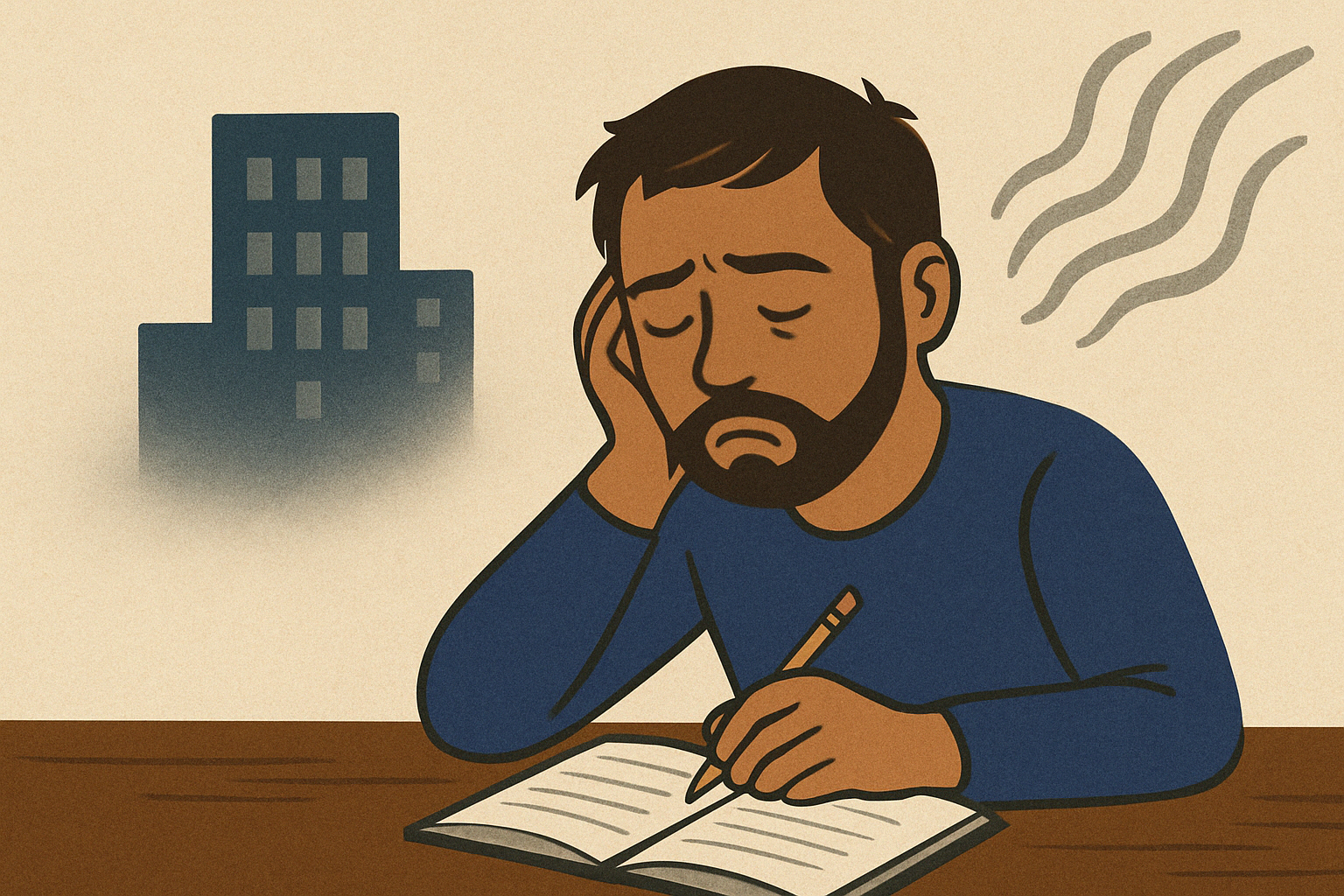How to Write Consistently When Your Day Job Drains Your Mental Energy
As a writer, some days feel like you're pulling teeth to get something out on the page.
That's just one element of many that makes it hard to stay consistent. Many of us work full-time jobs and they can be mentally draining. This adds to the friction, making it harder to write consistently.
I work full time as an IT Professional. This job often requires a lot of troubleshooting, problem solving, and of course thinking. The mental energy drain can make it hard to have the cognitive power to write daily.
I have discovered a few tools that help me write every day.
Start a Writing Routine Before Work
If I was to only give one suggestion, this would be the first I would suggest to anyone. It has been the most beneficial change to making my writing routine consistent. My creative energy levels in the morning are much stronger allowing me to come up with ideas more quickly.
In addition to having a more creative mind, I'm able to get into a flow state due to few distractions early in the morning. It seems that the ideas just appear on the page.
Studies have shown that the mind is more creative in the morning for most people. This isn't always the case, but if you're exhausted after a long day, I suggest giving this a try.
Take a Fifteen Minute Walk Before You Write
After a long day at work, the last thing I want to do is sit in front of a screen. Working in IT, I'm staring at three screens throwing information at me all day.
It's time to touch grass.
A fifteen minute walk gives my brain and my eyes a rest from the screen. It allows the mind to flow from thought to thought. You can use it to just enjoy nature, the sounds of the wind and birds. It resets the mind and body giving you new energy to write.
Avoid Mindless Apps
One thing that tends to make my mental awareness worse are apps like TikTok, Instagram, and other doom scroll type apps. Taking these out of your daily cycle will keep your cognitive levels higher throughout the day.
There's a reason the term "TikTok Brain" was coined.
These apps create cheap dopamine in your brain. As you scroll from video to video, you're trapped in a cycle of dopamine hits that fatigue your brain more and more. The only reason to keep them is to use them as a creator, not a consumer.
Use Your Day as Inspiration
On those days that really get you busy. You know, the ones where you get home from work and all you want to do is sit your ass on the couch and hit the Netflix button. I'm willing to bet that on those days you can find more inspiration than you might realize.
I recently found myself in that situation.
We had a major outage, I was on with Citrix support half the day. During that time I was also answering questions, and checking out internal systems trying to figure out the root cause of the outage. Long story short, turned out the outage was from Citrix Cloud and not us.
This day had inspired my write up "How to Avoid Burnout in Demanding Jobs like IT". You can find inspiration and ideas almost anywhere, you just need to look.
Create a Practical Writing System and Strategy
Systemize your writing routine. It can shift your mind into a writing mode regardless how mentally exhausted you might feel.
Consider adding to your schedule a block of time just for writing. A consistent calendar reminder will shift your focus to writing. Treat it like an important meeting where you need to be prepped and ready to deliver.
Leverage downtime for writing. Those few minutes could be used to brainstorm ideas, outline your next article, or a note you want to remember. If you start writing, using a Hemmingway Bridge will give you a place to pick up later.
Brain dump before you start writing. Spend a few minutes writing down everything on your mind. These could be technical problems, worries, ideas. The key is to clear the mental clutter.
Use templates and writing prompts to get you started. It reduces the friction between writing and your mental exhaustion. Then you can build to writing from scratch.
Work adds to the friction of writing. Don't let it be an excuse.
Let's review:
Start a Writing Routine Before Work
Take a Fifteen Minute Walk Before You Write
Avoid Mindless Apps
Use Your Day as Inspiration
Create a Practical Writing Strategy and System
This list could be longer, and we could deep dive into each with more detail. These happen to be my favorite go to tools.
Give these a try. let me know if they helped, or if you have tips of your own.
